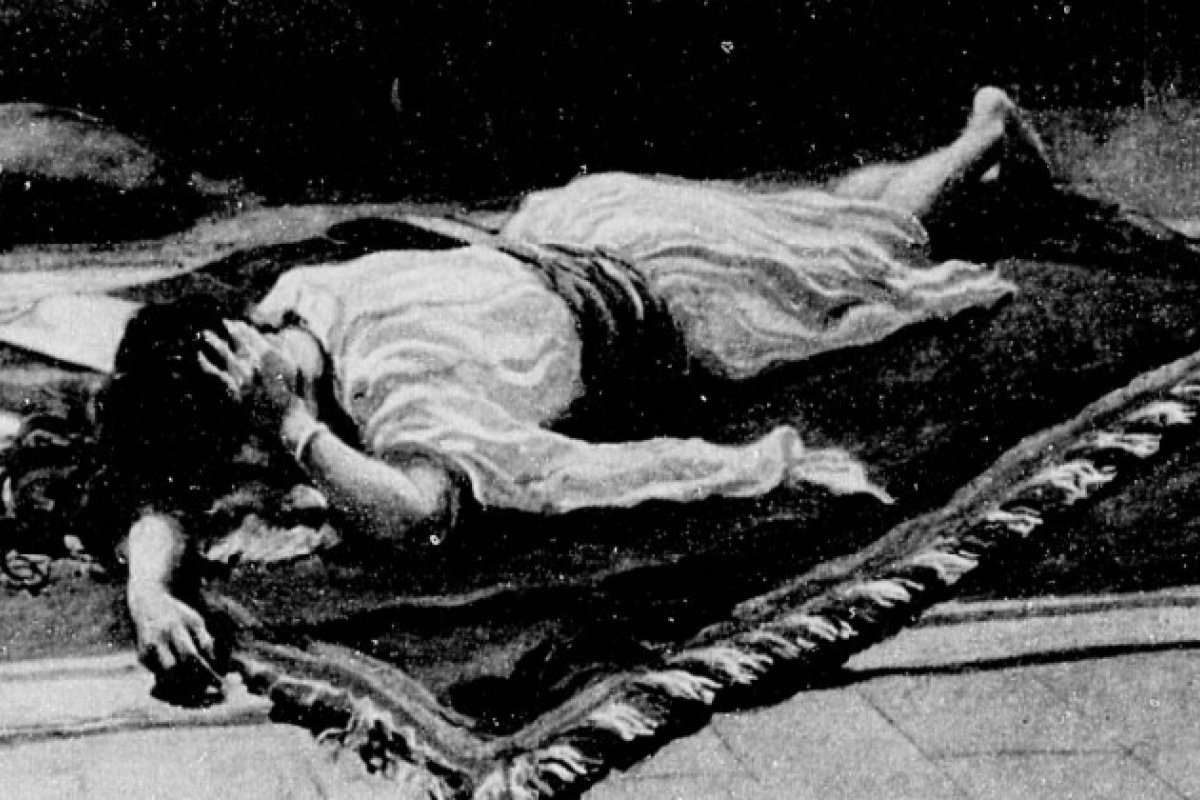
Imagining History without Heroes and Villains
What the Hebrew Bible can teach Americans about reckoning with the fallenness of our nation's founders
“Against every law of society and nature,” President Trump said in a recent speech at Mount Rushmore, “our children are taught in school to hate their own country, and to believe that the men and women who built it were not heroes, but that [they] were villains.”
President Trump is not alone in thinking that recent efforts to draw attention to the history of slavery in America are villainizing the nation’s founders. The President’s comments presuppose a dualistic view of history, in which historical figures can be divided into two categories: heroes and villains. On this view of history, teaching children that George Washington owned slaves from age eleven until his death, for example, is an attempt to negate his accomplishments and move his name from the heroes’ column to the villains’.
Few people will, if they stop to think about it, agree that this dualistic view of history is correct. We are all aware—even if dimly—that people are more morally complex than this picture allows. “The line separating good and evil,” Solzhenitsyn reminds us, passes “right through every human heart.” And yet there is an attractive simplicity to the dualistic view of history. Even people who acknowledge its limitations can slip into this way of thinking and speaking. Dualism has a sort of gravitational pull on our historical imaginations. It’s worth considering why we are drawn into this way of thinking, and how religious texts can challenge this tendency.
Dualism provides a way of telling a nation’s origin story that lets us identify ourselves with the heroes and distinguish ourselves from the villains. As in President Trump’s speech, dualism can make national pride seem like a litmus test for trustworthiness and virtue. It allows us a neat and tidy way of drawing moral lessons from history, teaching children to emulate the heroes and be on guard for people like the villains. For these reasons, facts that challenge the dualistic narrative can feel like challenges to morality itself. Since our assessments of right and wrong are so closely tied up with stories of heroes and villains, any piece of information that complicates those stories feels like it calls into question our whole moral framework for thinking and living.
Historical dualism is dangerous. If we identify with the heroes, we can miss the ways our actions more closely resemble those of the villains. If we only hear half the story of history, we are likely to draw the wrong lessons from it. If we do not reckon with the ambivalence of historical figures—how their moral blind spots made them justify atrocities, how their prejudices had catastrophic consequences, how their accomplishments often came at the cost of the suffering of others—then we will not be able to understand the contemporary world and the moral decisions we currently face. Nostalgia for a lost golden age distorts our understanding not only of the past, but the present.
Like national histories, religious traditions tend toward dualistic narratives. Growing up in a religious community, one hears stories full of heroes and villains that serve as both a storehouse of moral examples and a mythic origin story that shapes a religious group’s sense of itself. And yet, within religious classics we also find stories that challenge and destabilize dualism.
Consider, for example, the Hebrew Bible, held as sacred by Jews, Christians, and Muslims. The narrative books of the Bible are the mythic history of the ancient nation of Israel: the covenants, struggles, and migrations that constitute the people’s sense of where they came from and who they are. It has no shortage of characters to root for: persistent underdogs like Hannah, lovable tricksters like Jacob, courageous protectors like Esther, and inspiring leaders like Ezra. (This is not even to mention the superhero stories that make up the Judges Cinematic Universe.)
Yet frequently the Bible depicts the failings and shortcomings of these heroic figures. The Bible recounts not just David’s triumph over Goliath and his psalms of praise, but also his murder of Uriah the Hittite. Readers learn both of King Josiah’s religious reforms and the ill-advised battle he waged against Egypt. Readers are told that Abraham and Isaac lied about their wives, that Sarah lied about laughing at God, that Solomon committed idolatry, and that Moses disobeyed God's command by striking a rock in anger. Some of these passages are strange; indeed, it seems at times as if the authors and compilers of the Bible went out of their way to include stories of heroes’ flaws and misdeeds. One interpretation would be that readers should never put their trust fully in princes, prophets, and patriarchs, but in God. The Bible does tell of an idyllic golden age, to be sure, but it only lasts for a handful of verses in Genesis 2; soon readers are confronted with the ubiquity of human evil.
This thread within the Hebrew Bible challenges readers’ reliance on historical dualism. The retelling of these stories does not mean readers were being taught to hate their founding figures, nor does it do away with the need to look to the past for moral guidance. Instead, these passages remind readers that every human being is an ambivalent and complex creature, and that praiseworthy actions do not absolve one from blame. Only a people capable of telling stories like these about their nation’s past will be capable of wrestling honestly with their own failings.
Turning from the Hebrew Bible back to American history, there is an exhibit on Thomas Jefferson in the National Museum of African American History and Culture. In this exhibit, the words of the Declaration of Independence are inscribed in gold on a wall. The words, however, are partially obscured by hundreds of bricks on which are written the names of the 607 women and men Jefferson enslaved. This image testifies not only to the ambivalence in Jefferson’s own life, but to the fact that Americans must reckon with the injustice in our nation’s history if we are ever going to realize the promises of life, liberty, and the pursuit of happiness.
Image: "Bethsabée Pleur son Mari" (Bathsheba Mourns her Husband). Illustration of II Sam. 11:23 by J.J. Tissot; courtesy of Bibliothèque Nationale de France.
Sightings is edited by Daniel Owings, a PhD Candidate in Theology at the Divinity School. Sign up here to receive Sightings via email. You can also follow us on Facebook and Twitter. The views and opinions expressed in this article are those of the author and do not necessarily reflect the position of the Marty Center or its editor.


